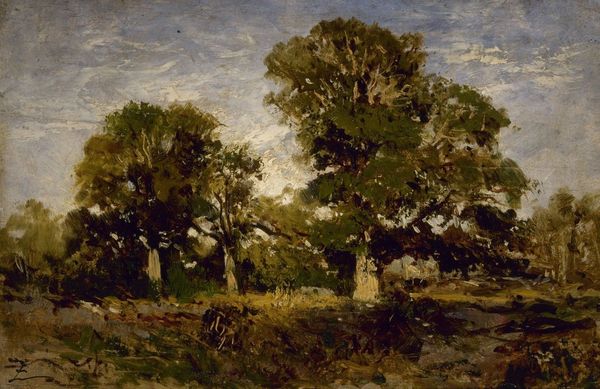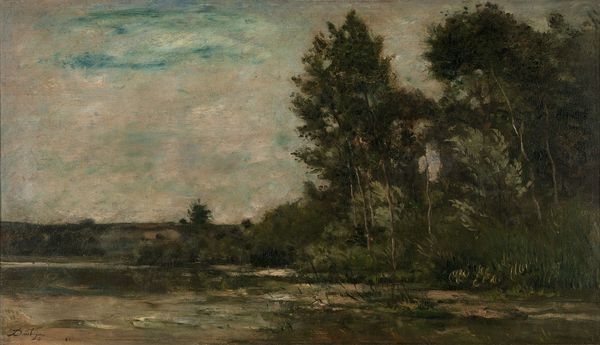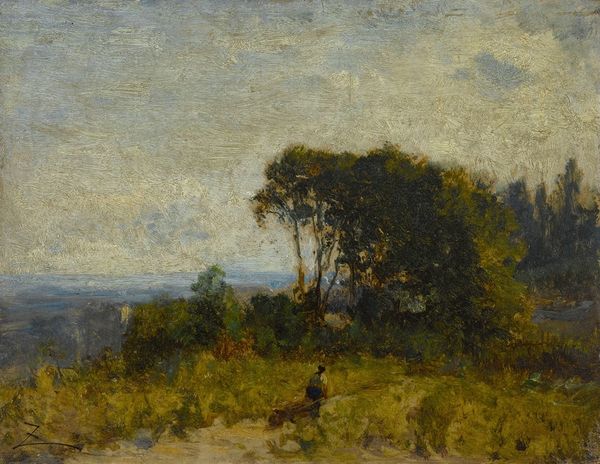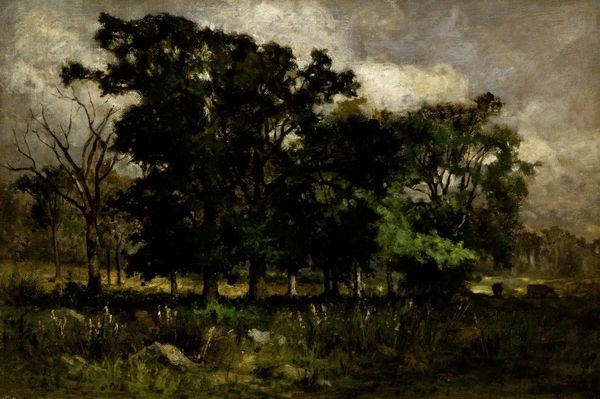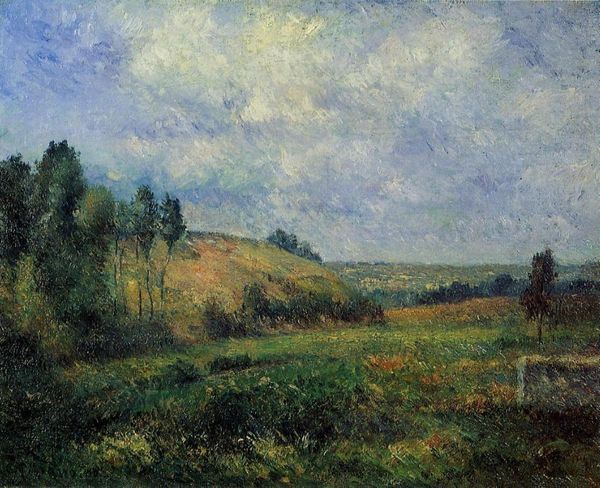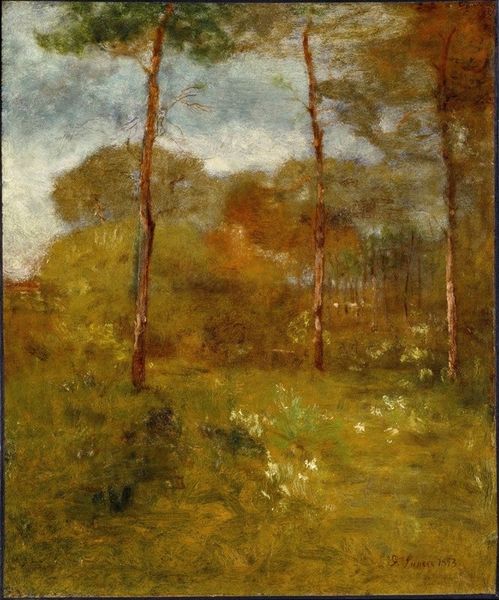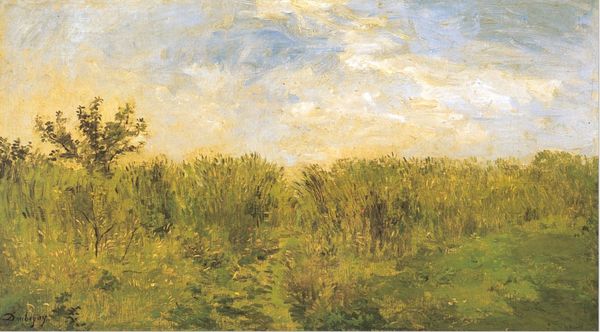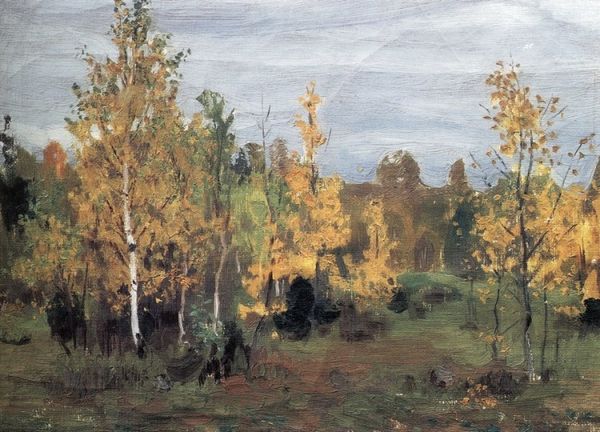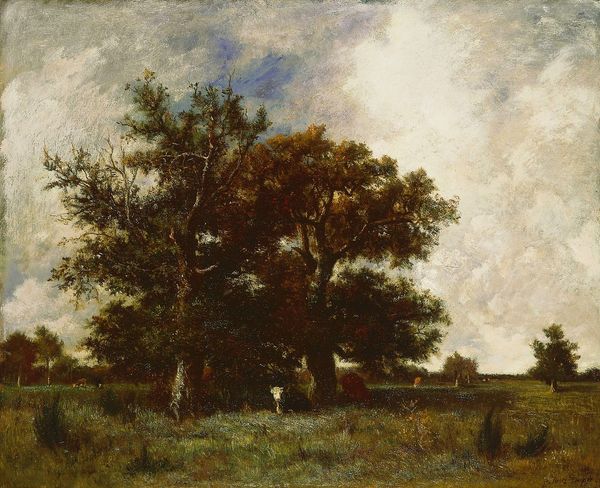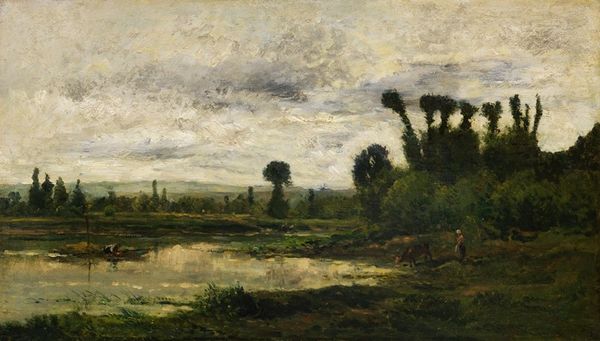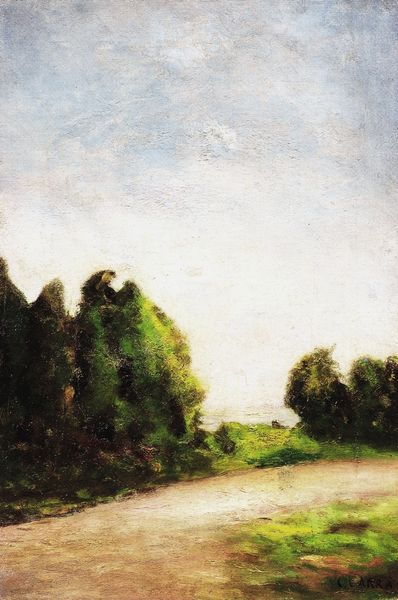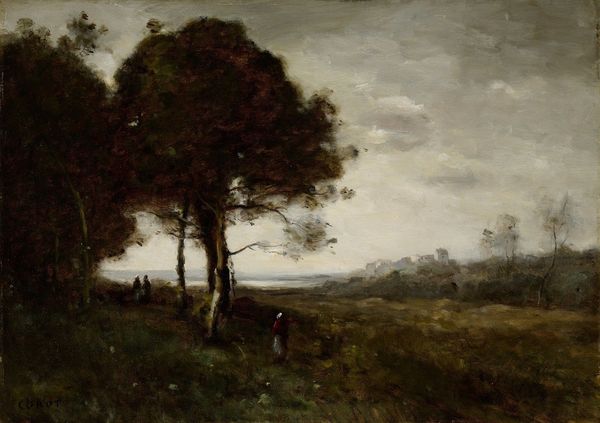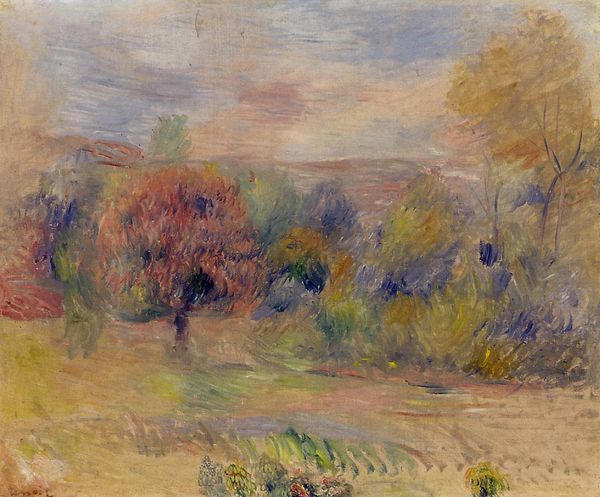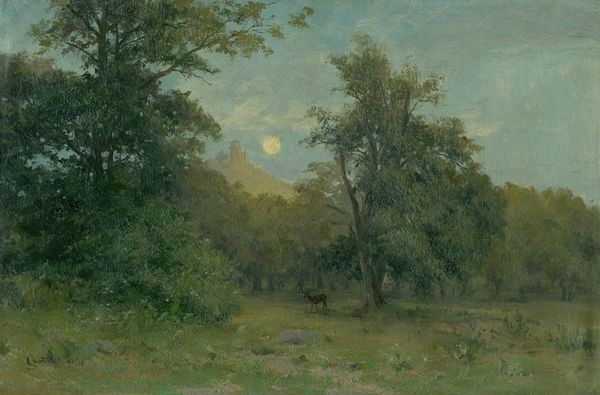
Copyright: Public Domain: Artvee
Editor: So, this is "Landscape" by Charles-François Daubigny, painted in 1865, and rendered with oil on panel. The overall feeling is quite melancholic. I wonder, with his distinct blending, what statements do you think he's making in this piece? Curator: Daubigny was a key figure in the development of Impressionism and his landscapes offered a fresh vision in the Salon-dominated world. This image showcases how artists like him began moving painting en plein air, as indicated in the metadata. Look at his bold brushstrokes capturing transient light conditions, quite subversive when we think about the then-dominant academic painting. Can you observe how this method and style choices affected the message that the artwork aimed to portray? Editor: I guess, painting outside makes it more direct, less constructed. It reflects immediacy and capturing a personal perspective. Was this challenging to the establishment? Curator: Precisely! It challenges the traditional role of landscape painting as simply idealized nature, it brings it to eye-level observation and, more importantly, emotion. Landscape became less about glorifying the landowners and more about experiencing the raw emotion felt during urbanization and industrialization. Also, we need to address how images like Daubigny’s paved the way for future Impressionists who radically changed art’s reception and function in society. Do you perceive any particular visual components emphasizing social commentary or context in this scene? Editor: It’s a very subdued landscape. Instead of being celebratory, it is humble, capturing perhaps more authentic, grounded feelings. Curator: Exactly! In a way, Daubigny, painting those intimate observations, participates in establishing not only an art movement but also a new understanding of our relationship to our environment, don’t you agree? Editor: Definitely! I see that a bit clearer now, looking beyond just the technique to the social context makes his visual choices feel more meaningful. Curator: It all boils down to historical context. Hopefully this unveils art as embedded in politics. Editor: Thanks, this has given me so much more to think about, approaching it this way, using a different frame.
Comments
No comments
Be the first to comment and join the conversation on the ultimate creative platform.
